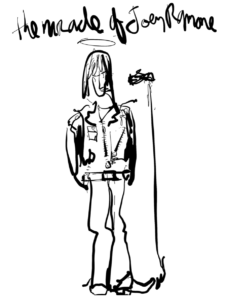What do you think?
Rate this book


564 pages, Hardcover
First published November 1, 2022
"There is something about our band that can never be too cocky or cool. Our best work is never too far from our worst, and when we get too professional or too hip, our audience seems to shrink. It’s as if we need to be up against the odds."
Some part of us wanted to be men of the world, but a greater part knew we were so much more powerful as boys who didn’t know too much about “the world.”
The arc of the moral universe does not bend toward justice. It has to be bent, and this requires sheer force of will. It demands our sharpest focus and most concentrated effort. History does not move in a straight line; it has to be dragged, kicking and screaming, all the way down the line.
To kneel down, to implore, to throw yourself out into space, to quietly whisper or roar your insignificance. To fall prostrate and ask to be carried. To humble yourself with your family, your bandmates, and to discover if there’s a face or a name to that silence
Songs are my prayer

Our work is borders, crossing them. Borders are a big attraction for me, leaving one country on the way to another, leaving one thought on the way to another. . . . The liminal is the place to be. The bleeding edge. . . . An artist searches for territories yet to be discovered and, better still, places on the way to somewhere else. The poet loves a crossroads. (121)This reminded me of what Makoto Fujimura has written about the artist as a mearcstapa, a “border-stalker”:
Artists are instinctively uncomfortable in homogeneous groups, and in “border-stalking” we have a role that both addresses the reality of fragmentation and offers a fitting means to help people from all our many and divided cultural tribes learn to appreciate the margins, lower barriers to understanding and communication, and start to defuse the culture wars. (Culture Care, 58)Surrender is also probably the fullest presentation of Bono’s spirituality and Christian faith as it is now. We see him as unorthodox in his perspective on church (“I’ve never quite found a church I could call home, and I tell the kids to be wary of religion, that what the human spirit longs for may not be corralled by any sect or denomination, contained by a building,” 530), but deeply dependent upon the Bible:
Why am I always talking about the scriptures? Because they sustained me in the most difficult years in the band and they remain a plumb line to gauge how crooked my ego has become. To getting the measure of myself. This is where I find the inspiration to carry on. The exhortation that makes this struggle with the self workable. The wisdom that makes it doable. (529)His spirituality comes from a place of seeking and wandering, and it almost seems that he wants this restlessness rather than the stability he might have if he were to give such a life priority:
I’m always looking for the liminal space, the outer edges of emotion. If I write a song about faith, I express it through doubt, because “I still haven’t found what I’m looking for.” If I write a song about a “beautiful day,” it’s also about the longing for a lost friend. (502)Crossing borders, spiritual restlessness, distance from established church and religion . . . these are the things that have always made Bono beloved of some Christians and extraordinarily frustrating for others.
--North Side Story: U2 in Dublin 1978–1983, by Niall Stokes (A collection of articles about U2 from the very beginning. It’s a fantastic history of the music and culture of Dublin that formed U2.)These books give a wonderfully comprehensive picture not just of U2 or of Bono but of the cultural context in which they grew and developed. Surrender includes some good moments, but having read all of those other books (and more besides), and having spent a lifetime learning about and enjoying U2, it felt overall unnecessary. I think Bono’s live performance of sections of the book on his book tour was probably the best thing to come of the project, but unfortunately, the tour didn’t come anywhere near me, so I missed that experience. I continue to live in hope of another U2 album, and another concert tour with the whole band. The legacy I most want is not a careful retelling of the same stories, but for the band to find ways to continue doing what I’ve always loved them for doing.
--U2 at the End of the World, by Bill Flanagan (Flanagan traveled with U2 during the ZOO TV tour, and this book is one of the most thoughtful, in-depth pieces of journalism I’ve ever read.)
--U2 by U2, by Bono, Edge, Adam Clayton, and Larry Mullen Jr. (Though it only takes the story up to 2005, it’s still the best history of the band, and the only volume that each of the four band members contributed so much to.)
--Bono: In Conversation with Michka Assayas, by Michka Assayas (For anyone interested in Bono’s spiritual journey and political activism, I actually recommend this book more than Bono’s own memoir.)